More on Ben Landry’s Tiny House in Binghamton, New York
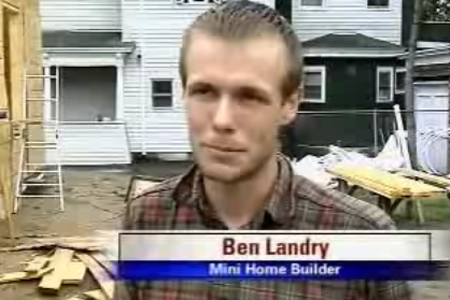

A few days I posted a short blurb on a fellow named Ben Landry in Binghamton, New York who is building a 250 square foot tiny house. I’ve not been able to make contact with Ben yet but I did a little research and was able to dig up some good information on Binghamton’s building codes and zoning which shed some light on how Ben was able to get permits for this tiny house approved. I also found this interview:
Ben’s lot is 75′ by 50′ (3,750 square feet) and sits on the corner of Walnut St. and Seminary Ave. Setbacks are 25′ in front, 15′ for the total sides with one being at least 5′. The rear setback is 15′ and there’s a 35′ building height limit. It looks like his lot is zoned R-2 which allows for two dwelling units per lot.
I suspect he may have gotten approval for a variance because it looks like the minimum lot area for one unit on an R-2 zoned property is 6,000 square feet. His lot is only 3,750 square feet. But the minimum lot area for R-2 is 3,500 square feet when two dwelling units are build… so logically there would be a good argument for the variance especially since the home is so small. I could find no dwelling unit minimum in the zoning ordinance for the City of Binghamton.
It also sounds like Binghamton is working to revitalize the local economy though some carefully chosen zoning changes. If this is the case then it would also make sense that the planning department is open to people like Ben who want to build their own home.
Fees are also extremely low. I’m not sure if there are any additional fees assessed by the county but the construction fee schedule for the City Of Binghamton states that there is no fee for the electrical permit, sewer permits are $10.00, and construction fees are ½ of 1% of construction cost, with a minimum fee of $10.00. Plumbing fees are $5.00 plus $1.00 per fixture. So if I did my math right that would put Ben’s total permit fees at less than $100.
If your jaw just hit the floor you’re not alone. It sounds like the City of Binghamton has eliminated fees as an obstacle for someone who wants to build a house.
The newspaper and television stories report that Ben went to Binghamton University and studied sculpture. His house will have most or all major appliances like an air conditioner, washer and dryer. His property taxes will be about $600 a year. The lot cost him $5,000 and he expects to spend about $8,000 to build his house. By the end of November construction should be finished and Ben should be living in his new tiny house.
The most common questions I get from people are centered around how to overcome restrictive local building codes and house size minimums. Running across a success story like Ben’s is great and shows that there are communities open to tiny house owner-builders.
I think the trick to finding them starts with a little research online. It’s amazing how easy it is to find zoning maps, permit fee schedules, local ordinances, for even the smallest communities. Many times these are controlled at the county level and in other cases at the city level. Sometimes you’ll even need to look at both city and county rules.
Then to further your research try calling the local building inspectors and ask if you can throw a hypithetical situation by them. Ask questions about home size minimums in different zones and tell them you’re considering building a small house and just want to know how small you can go. Often you’ll be able to find a friendly building inspector who can spare a few minutes.
I’m guessing Ben filled out his one page building permit application, drew up some simple plans, and walked his small fee into the planning office and got his approval. I bet the variance I described above was virtually a non issue. I also bet the folks in the planning office got a kick out of the 250 square foot plan, that’s not something you see everyday.

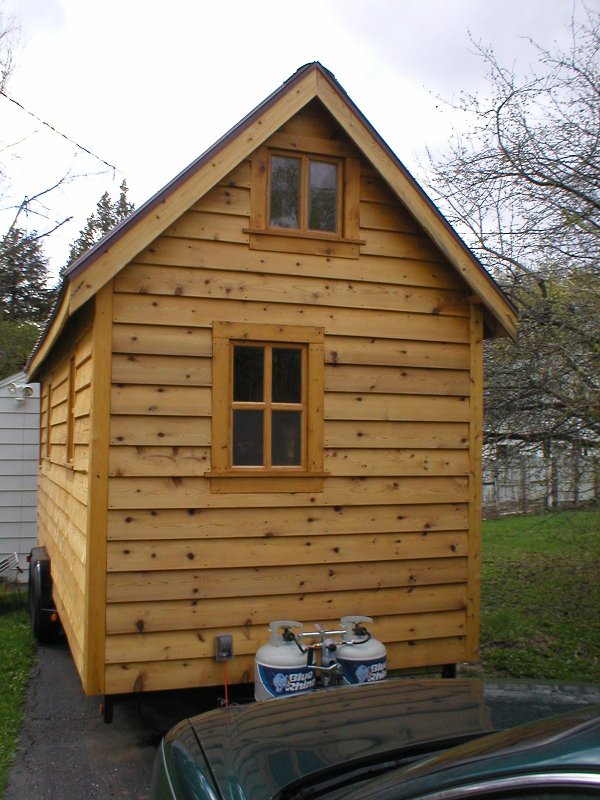
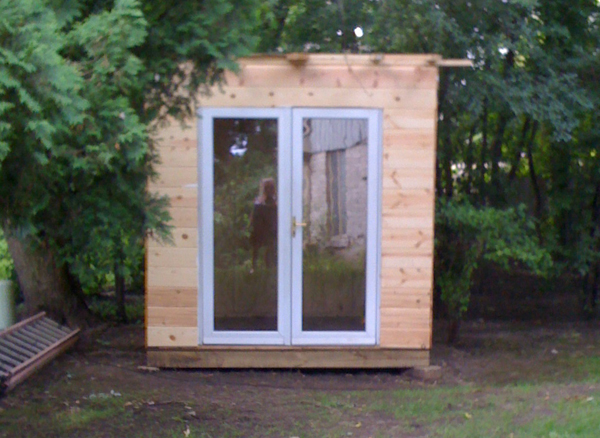
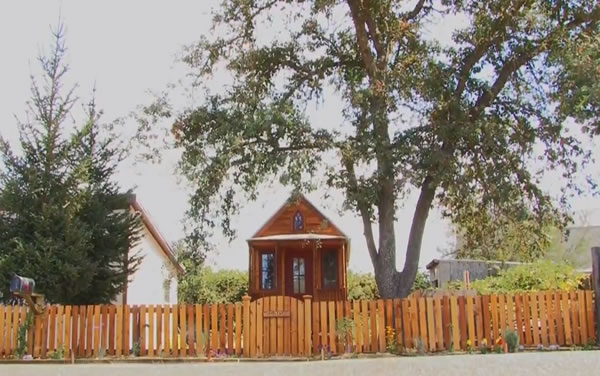

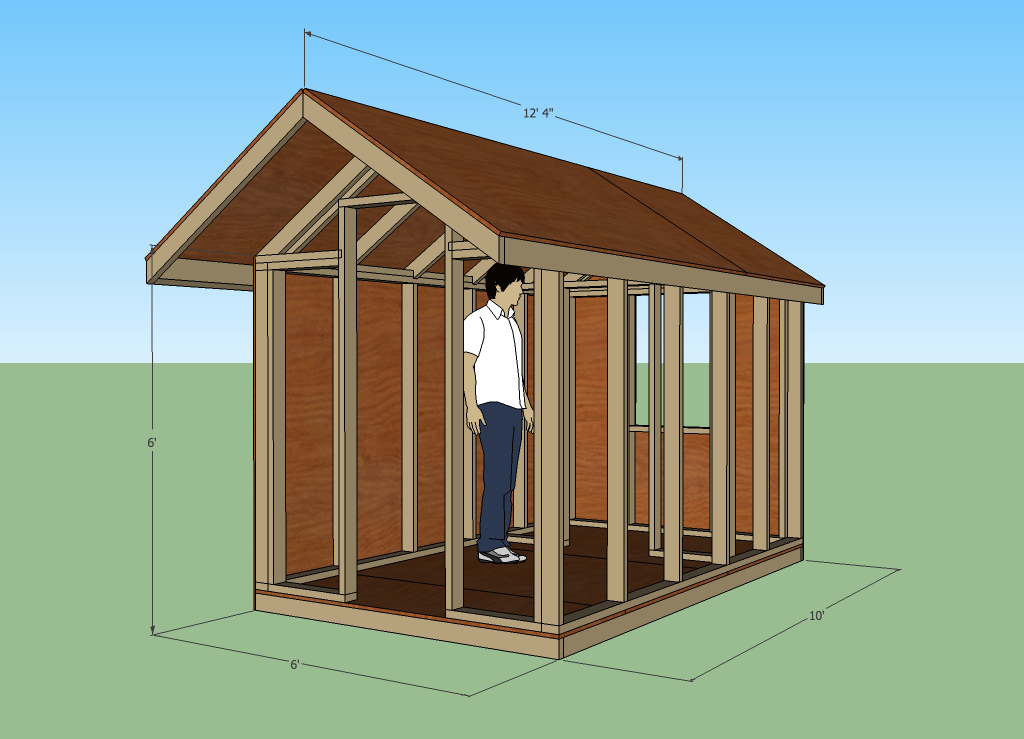
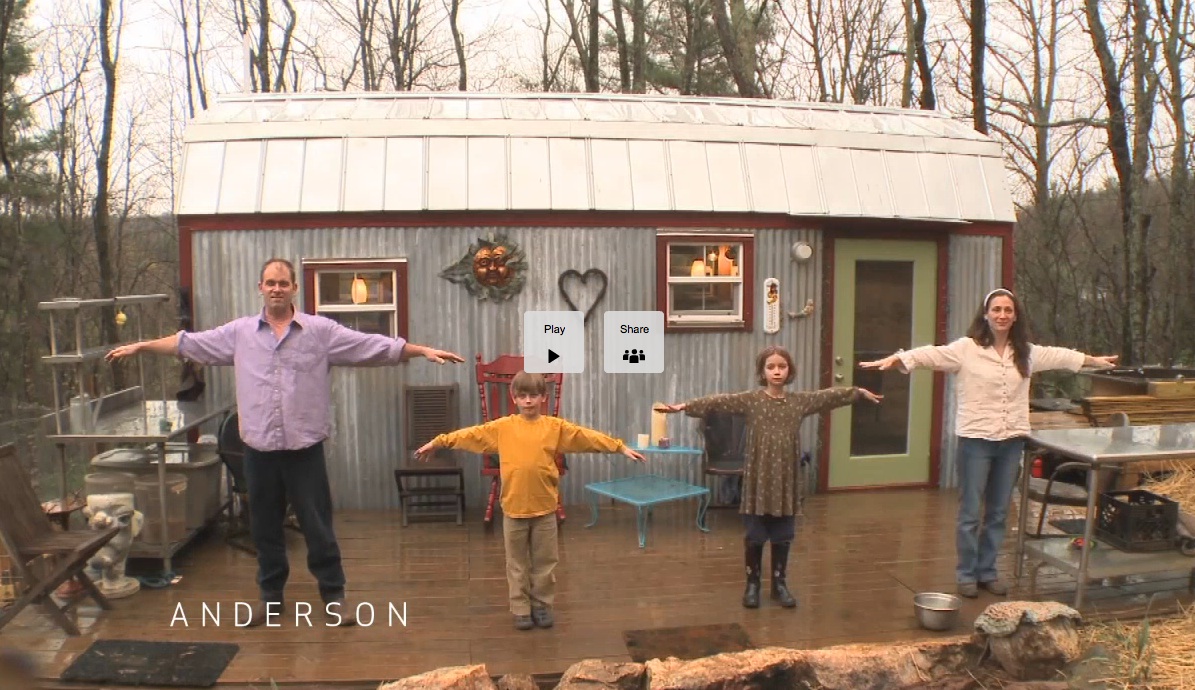
Wow—-Michael, thanks for tracking down this additional info. I’m amazed at how inexpensive the permitting process was for him. Low property tax, utilities, even in a cold snowy area, will be low, just a heck of a deal, cost-wise. Even if the house is all electric, with no wood stove or solar panels, annual living cots of taxes+utilities probably won’t exceed $1000.
Hope Ben makes his way here and shares his experience, and maybe some photos.
Definitely some food for thought. At my age (early 50s) an option that would allow me to leave very cheaply in a decent sized town/small city, has more appeal than the more rural/off-grid tiny homes.
Mary… exactly… a side effect of what Ben is doing will be to show people IT CAN BE DONE and to give hope to those feeling stuck. It’s really a powerful news story, I hope it gets more publicity. I even tipped off Steven Kurutz, the NY Times reporter that recently did the story that included my tiny free house. The whole country needs to hear that super low cost home ownership is possible.
Longtime Binghamton (note no “P”) resident here. I was actually looking for something else altogether different when I came across this article. Just an FYI – it drives Binghamtonian’s NUTS when people spell Binghamton – Binghampton. Please drop the “P”‘s. 🙂
Thanks! All those Ps are left the Binghamton building!
Lotsa background I thank you! If I recall too, other things: 600 amp or less electric service and you don’t need either a permit or an electrician or something; bathroom minimum is to be 5×8 feet; 3′ shower minimum; ceiling minimum 7’2″. I am not U but I wanted to build a house smaller than the one I lived in – this was an area I went through but decided on the country for ruralness instead of city living. Good luck to Ben Landry! I’m happy to see it – the last small(shotgun) house style I spotted got remodeled to larger.
I know this article is fairly old, but even before the rest of the US had it’s economic and housing crisis southern central NY has been in a slump for a very long time.Property value’s are low and things are looking worse every year. They are desperate to keep as many people as possible in these areas (From Elmira, NY to Binghamton, NY)to keep the economy from crashing any further, so allowing someone to build a tiny house does not surprise me. Where I live you can buy a fixeruper 3 bedroom house for as little as $27,000 and there are local charity agencies that will even give you several thousand to buy a property in the city if you are poor.